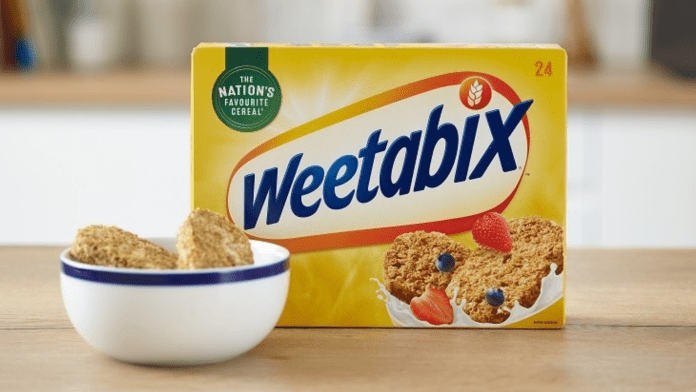Post Holdings has announced its intention to assess Weetabix’s expenses while continuing to invest in the UK cereal manufacturer’s brand, aiming to enhance the business’s profit margins, according to the statement from the US group.
Post Holdings reported a nearly one-third year-on-year decline in the “adjusted EBITDA” generated from its Weetabix business unit, responsible for producing both branded and private-label products, for the three months ending in September, as disclosed by the company on Thursday (16 November)
The drop in earnings occurred despite a 15.5% rise in net sales during the fourth quarter of Post Holdings’ financial year.
The depreciation of the sterling against the US dollar provided a lift to the value of Weetabix sales. Post Holdings reported a 7% increase in “currency-neutral” net sales, supported by price adjustments. Volumes experienced a 2% rise, attributed to the growth in Weetabix’s private-label business and the inclusion of UFit, the UK protein-shakes supplier acquired last year.
Addressing analysts on Friday following the release of Post Holdings’ annual results, interim CEO Jeff Zadoks mentioned that the company had undertaken investments in the Weetabix business during the fourth quarter to enhance its performance.
Zadoks, currently filling in for Rob Vitale as the Post Holdings president and CEO undergoes cancer treatment, noted that the company increased its investment in advertising for Weetabix during the fourth quarter, surpassing the usual run-rate level.
“In addition within Weetabix, there were projects that we believe will kick-start 2024 [where] we invested in certain consulting activities for looking at our trade promotion, the effectiveness of our trade promotion and also looking at ways that we can improve the cost structure of that business. We would not expect those to repeat at the same level in the go-forward periods,” he said.
Zadoks, who is also Post Holdings’ chief operating officer, said “tough” trading conditions in the UK had also weighed on Weetabix’s business. The Weetabix brand had felt the impact of consumer demand for own-label cereal products, he noted.
“The margin in that business has suffered more than the rest of our portfolio. We attribute that to the fact that the UK environment has been much tougher than the US environment, so that’s part of the equation,” Zadoks said.
“And we are very premium products. The Weetabix brand is a very premium product in the UK market. If you track that market, cereal has become slightly greater than 50% private label, so a much more dramatic move to value than we’ve seen here in the US.”
He added, “What we need to do to get it back to closer to where we were pre-pandemic is we believe we need to simplify the business. We need to have a renewed focus on cost reduction and we need to continue investing in the brand so that we maintain the premium price points that enable us to generate the margins from that business. The combination of those three things are the things that are going to be the focus of our activities in 2024.”
Weetabix forms part of Post Holdings’ Post Consumer Brands division, witnessing a notable 73.1% increase in overall adjusted EBITDA to $199.7 million in the quarter. The division’s net sales also rose significantly by 71.5% to $1.01 billion, bolstered by Post Holdings’ acquisition of a selection of pet-food brands from J.M. Smucker in April.
Discounting the effects of that acquisition, the division experienced a 6.2% decline in volumes, attributed to reduced sales volumes in peanut butter and branded cereals.
Post Holdings anticipates a return to pre-Covid-19 trends in the US cereal category once it surpasses the conclusion of temporary SNAP benefits at the end of February last year. At the outset of the pandemic, the US government permitted states to provide the maximum allowable benefits to recipients of the Supplemental Nutrition Assistance Program, aiding lower-income households. However, this policy ceased in February 2022.
Zadoks said, “We expect to return to the pre-pandemic levels of flat to down a couple of per cent. As we plan for [fiscal] ‘24 for our business, we use those category dynamics as a baseline. We believe that we can perform somewhat better than that but we’re not counting on volume growth in our plan for next year. We would expect that there is going to be some volume declines in fact … not quite as bad as the category but still slightly down..”
Overall, Post Holdings’ group fourth-quarter net sales were $1.95bn, up 23.2% on a year earlier, helped by the pet-food deal.
Operating profit increased 16% to $153m. Net earnings were down 21.7% at $65.7m.
Adjusted net earnings, which stripped out a series of more one-off items, stood at $119m, against $54.1m in the corresponding period a year earlier.
Post Holdings booked a non-cash goodwill impairment of $42.2m on its cheese and dairy unit. The company pointed to “the narrowing of the pricing gap” between brands and private label, which it said had led to “distribution losses and declining profitability”.





